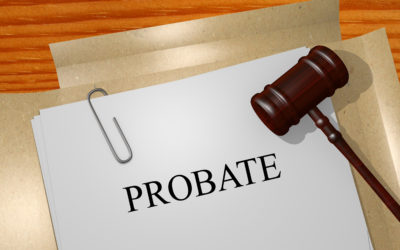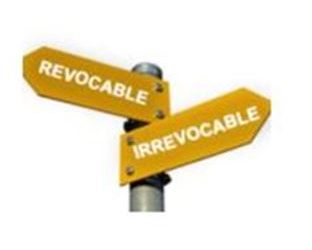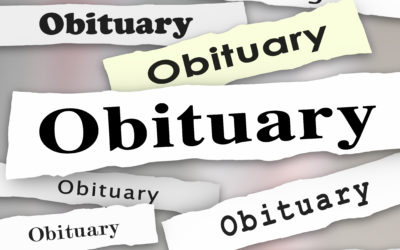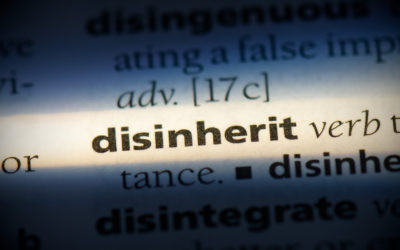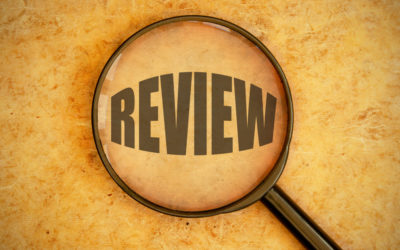Isn’t There Already A Law That Leaves Everything To My Spouse And Kids?
Many people think that if they die while they are married, everything they own automatically goes to their spouse or children. They’re actually thinking of state rules that apply if someone dies without leaving a will. In legal jargon, this is referred to as “intestate.” In that case, the specifics will vary depending on each state’s law, so where you live when you die can significantly change the outcome for your family.
Important Milestones You Can Incorporate in Your Estate Plan
Life is full of contingencies. While some outcomes are relatively certain, other events are more difficult to predict. This uncertainty can create estate planning challenges. Because life changes quickly and sometimes unexpectedly, your estate plan needs to be flexible. Incorporating milestones into your estate plan is one way to hedge against the unpredictable future. By creating incentives for particular events, you can continue to exercise your values and provide for your loved ones beyond your lifetime.
Things You Can Do to Help Prove You Are Mentally Competent When Executing Your Estate Plan
In most states, there is a legal presumption that people have capacity to create their estate planning documents and that they can transfer their property to whomever they would like. This means that the person challenging your plan has the burden of proving that you did not have capacity at the time your documents were signed. Nevertheless, there are some proactive steps you can take to provide evidence that you were competent when you created or updated your estate plan.
Your Planning Team for Your Next Adventure
When planning your next great travel adventure, you may decide that you can do it yourself. You know what you and your travel companions want to see and do, how much you are willing to pay, and the most convenient times to travel. While making travel arrangements may be okay to do yourself, you need to consider calling in a special planning team to make sure that you and your loved ones are protected during your travels and afterward. The following are some individuals you should schedule appointments with before you leave on your next adventure.
Important Issues to Address Before You Leave on Vacation
Getting ready to embark on your next great adventure? Before you zip up the last suitcase, here are five issues you need to address to protect yourself and your loved ones.
What If I Cannot Find a Beneficiary?
When someone has named you as the executor (also known as a personal representative) of their will or the trustee of their trust passes away, you are obligated to distribute that person’s money and property according to the document’s terms to the designated beneficiaries. (For convenience, the roles of executor and trustee will be referred to throughout this article as the general term fiduciary.) Sometimes, perhaps because of a family conflict or just falling out of touch, the whereabouts of a will or trust beneficiary are unknown. What should you, as the fiduciary, do if you cannot locate a beneficiary of the will or trust?
An Introduction to Dynasty Trusts
When people create estate plans, they typically focus on handing down their money and property to their children, grandchildren, and other living heirs. But some people want to leave behind a more enduring legacy. For those interested in multigenerational wealth transfer, a dynasty trust could be the answer.
Why a Trust is the Best Option to Avoid Probate
There are numerous tools of the trade that a qualified attorney can use to keep your money and property out of probate, for example, establishing joint ownership on bank accounts and real estate titles, designating beneficiaries for life insurance policies and certain accounts, and so on. However, setting up a revocable living trust is quite often the best, most comprehensive option for avoiding probate. Let’s discuss why this is true.
Three Celebrity Probate Disasters and Tragic Lessons
One would assume that celebrities with extreme wealth would take steps to protect their estates. But think again: some of the world’s richest and most famous people enter the pearly gates with no estate plan, while others have made estate planning mistakes that tied up their fortunes and heirs in court for years. Let us look at three high-profile celebrity probate disasters and discover what lessons we can learn from them.
How is a corporate trustee different?
In its simplest terms, a trust is a legal arrangement in which a trustee holds and manages assets for the benefit of one or more beneficiaries. The trustee owns the assets, enters into contracts on behalf of the trust, manages the trust’s investments as its trustee, and follows the trust’s instructions on making distributions. A trustee can be one person, multiple people, or a company.
Three Reasons to Avoid Probate
Having a will is a good basic form of planning, a will does not avoid probate. Instead, a will simply lets you inform the probate court of your wishes—your loved ones still have to go through the probate process to make those wishes legal. Now that you have an idea of why probate might be necessary, here are three key reasons why you may want to avoid probate, if at all possible.
Things to Consider Before Accepting Your Inheritance
The news that you will be receiving an inheritance is often bittersweet because it means that somebody close to you has passed away. But you might also have mixed emotions about your inheritance for reasons that have to do with the actual accounts or property you are inheriting.
On the one hand, you might not want to reject your inheritance out of respect for the person who put you in their will or trust or named you as the beneficiary of an account or policy. On the other hand, depending on what you have been gifted, an inheritance might pose unintended logistical or financial difficulties that you are unable—or unwilling—to take on.
What to Do When Your Doctor Says to “Get Your Affairs in Order”
Five words no one ever wants to hear from their doctor: “Get your affairs in order.” Unfortunately, 58 percent of Americans do not have a will or trust, and it often requires a chronic disease or terminal illness diagnosis, or other life-changing event to prompt the estate planning process. Talk to your attorney about completing the documents below and follow these tips to protect your future and make the circumstances easier for your loved ones.
Questions You Should Ask Your Estate Planning Attorney
Creating an estate plan is a personal and often emotional undertaking, making the selection of your estate planning attorney of the utmost importance. Here are some questions you should ask your estate planning attorney to determine if they are the right person for the job.
Estate Planning Pop Quiz – Final Question – True or false? A will accomplishes all of the same goals as a trust, but a will is cheaper?
Final question of our Pop Quiz. September means school is back in session or just around the corner, signaling the return of new school supplies, homework, and pop quizzes. Try your hand at this estate planning pop quiz to see if your knowledge of estate planning makes the grade and if it is time for us to schedule a meeting.
Estate Planning Pop Quiz Question #2: True or false? If I do not create my own estate plan or if my plan fails to provide for my current situation, my state’s law will decide what happens.
Question 2 of our Estate Planning Pop Quiz. September means school is back in session or just around the corner, signaling the return of new school supplies, homework, and pop quizzes. Try your hand at this estate planning pop quiz to see if your knowledge of estate planning makes the grade and if it is time for us to schedule a meeting.
Estate Planning Pop Quiz – Question #1: True or False? You must name the same person to make both your financial and medical decisions on your behalf?
September means school is back in session or just around the corner, signaling the return of new school supplies, homework, and pop quizzes. Try your hand at this estate planning pop quiz to see if your knowledge of estate planning makes the grade and if it is time for us to schedule a meeting.
You Are Never Too Young for An Estate Plan
Estate planning is definitely not a one-size-fits-all kind of deal. Every family has unique dynamics and circumstances that must be considered and examined when preparing an estate plan. As our lives evolve, so too do our needs and goals, which means an estate plan...
Common Excuses for Women for Evading Estate Planning
I believe the biggest reason women don’t plan is lack of education about the importance of estate planning. It is not easy to learn or speak about the possibility that one may, at some point in time, lose their independence and ability to take care of themselves. It is even more difficult to discuss the certainty of death.
Although lack of education is a major factor for woman failing to plan, other factors have an influence on women as well.
Tell Me a Little About Trusts
Who are the parties in a trust and how does a trust work?
What’s Probate? Sounds Scary, and It Can Be.
Regardless of whether someone has a will, their family will have to go through probate. What is the purpose of probate?
When a Bad Estate Plan is Worse Than No Plan At All
A poorly-constructed estate plan can in some cases be worse than having no plan at all. Poorly-constructed estate plans commonly lead to overpayment of taxes (with money that would have been better spent by the surviving family members) and expensive, needless court processes and legal battles (again, money better spent by the surviving family members).
Informal Probate Can’t Be As Bad As Formal Probate, Right?
For those not familiar with the term, probate refers to the legal process required to distribute the assets of the deceased. During the probate process, a representative is authorized to pay debts and distribute assets on behalf of the deceased. In probate, there are different routes: informal probate or formal probate.
Revocable Trust vs. Irrevocable Trust: Which Is Best for You?
A properly funded trust allows you to avoid probate, minimize taxes, provides organization, maintains control, and provides for yourself and your heirs. In its most simple terms, a trust is a book of instructions wherein you tell your trusted people what to do, when. While there are many types of trusts, the major distinction between trusts is whether they are revocable or irrevocable. We will take a look at both so you will have the information you need.
What Happens to My Spouse’s Debts at Their Death?
A spouse’s death creates a difficult and demanding time for the surviving partner. As much as you might want space and time alone to process your grief, you may have certain responsibilities related to settling your deceased spouse’s affairs, including paying off their debt.
Important Questions to Ask When Investing in a Vacation Property
According to the National Association of Home Builders, in 2018 there were approximately 7.5 million second homes, making up 5.5 percent of the total number of homes. These homes are not only real estate that must be planned for, managed, and maintained, they are also the birthplace of happy memories for you and your loved ones. Following are some important estate planning questions to consider to ensure that your place of happy memories is protected.
Don’t Have a Lot of Money? Here Are Seven Ways You Can Still Leave Your Family a Great Legacy
Although the word “inheritance” usually conjures up images of property or accounts with significant monetary value, you can leave your family an even longer-lasting inheritance by doing these seven things, whether or not your bank account is overflowing.
Do You Update Your Estate Plan as Often as Your Resume?
A resume is a snapshot of your experience, skill set, and education that provides prospective employers insight into who you are and how you will perform. Imagine not updating your resume for five, ten, or even fifteen years. Would it accurately reflect your professional abilities? Would it do what you want it to do? Probably not. Estate plans are similar in that they need to be regularly updated to reflect changes in your life and the law so they can do what you want them to do. Outdated estate plans, like outdated resumes, simply do not work.
When Rock Legends Pass Away: The Possible Fates of Meat Loaf’s $40 Million Estate
Meat Loaf, whose real name was Michael Lee Aday, passed away earlier this year at the age of seventy-four. There is no questioning the legacy of one of rock and roll’s biggest icons. But there are still unanswered legal questions about the fate of Meat Loaf’s estate. Although there is no evidence to suggest that Meat Loaf died intestate (i.e., without a will), we can speculate about his estate plan based on his life, legacy, and available legal instruments.
Important Steps to Protect Your Special Beneficiaries
All children are a blessing. From the day they are born, you begin making plans to ensure that your child or grandchild has a bright future. What will their interests be? What job will they have? Who will they marry? While these are common concerns for most families, for those with a special needs child or grandchild, taking steps to ensure they have a safe, happy, and healthy future is even more important due to the additional hurdles they may face. Attorney Kelly Longtin discusses steps to help provide a prosperous future for your special needs child or grandchild.
Three Steps to Take When the Deceased Has Controlled Substances
There are so many things to think about when a loved one passes away. What to do with the prescription drugs (or other controlled substances) that are in your loved one’s medicine cabinet is not usually at the top of that list. Yet, to avoid running afoul of laws governing their disposal, it is important to understand the proper procedures for disposing of a deceased person’s controlled substances.
If I Give My Home to My Child In My Will, Can They Take My Home While I Am Still Alive?
If I Give My Home to My Child in My Will, Can They Take My Home While I Am Still Alive? The short answer to this question is no. Naming your child as the recipient of your home in your will does not give them any right to your home while you are still living. However, understanding why that is the correct answer requires a little more explanation.
Important Things Your Agent Under a Medical Power of Attorney Needs to Know
A medical power of attorney is a crucial part of your estate plan that enables you to name a trusted person to make healthcare decisions for you if needed. It is essential for the person you name to have the information necessary to carry out your wishes for your medical care.
When a Gift May Not Be a Gift
Estate Planning – When a gift may not be a gift. The federal tax code has very specific rules about how much you are allowed to transfer to others each year—and over the course of your lifetime—in the form of a gift. Any gifts above that amount may be subject to gift tax, which is paid by the giver. However, not every gift is subject to gift tax. There are annual exclusion amounts, a lifetime exemption amount, and other exclusions.
Estate Planning Considerations for Couples with an Age Gap
With couples of similar ages, planning for the future is naturally a joint effort. However, if you are married to someone who is significantly older or younger than you, the future can look different and mean different things to each of you. To protect yourself, your spouse, and other loved ones, you need to have comprehensive financial and estate plans. For these plans to work as intended, it is important that you have an open and honest conversation with your spouse about the following financial and estate planning topics.
Electronic Wills
What is an Electronic Will? Will the courts determine if a will created and stored on a computer meets the requirements? What States Allow Electronic Wills? Should you use an Electronic Will?
How to Protect Yourself from Claims of Self-Dealing When Serving as a Trustee
A trustee usually has quite a bit of discretion in their management of a trust’s accounts, money, and property (known as assets). At the same time, as a fiduciary, a trustee also owes the trust’s beneficiaries a duty of loyalty, which prohibits the trustee from self-dealing. In the simplest terms, self-dealing happens when a trustee uses the trust’s assets for their own benefit instead of for the beneficiaries’ benefit.
Can I Make Estate Plans Without My Spouse?
The assumption that a couple will share finances, tax obligations, and a last name is one that does not necessarily apply in the 21st century. There are more options than ever before to keep your finances, identity, and future plans separate. This sense of independence leads many married people to question: can I make estate planning decisions without involving my spouse? The answer can be more complicated than you might expect.
Unclaimed Property – What is it, Where to find it, and its Impact on Estate Planning and Administration.
Regardless of how careful we are with our finances, it is possible for utility deposits, credit balances, unused gift certificates, banks accounts, and many more types of property or money to accidentally be forgotten or abandoned. In fact, across the country, there are billions of dollars in unclaimed property being held by the state and federal government. Fortunately, it is often possible to locate this property and obtain it. It is equally important for estate administrators or family members to look for unclaimed property when a loved one dies to be sure that all of his or her property is included in the estate and goes to the intended beneficiaries.
Happy 18th Birthday! Now What?
Congratulations! You are now considered a legal adult. Aside from purchasing alcohol, there is now very little you cannot legally do. Even though you may not feel any different, from a legal standpoint, a lot has changed. When you were a minor (under the age of 18),...
Changes to the FAFSA Form and What It Means for Grandparents
For grandparents who want to leave a legacy to their grandchildren, the gift of a 529 college savings plan is an option. Not only can opening a 529 plan account help a grandchild with educational expenses, it can also help grandparents with their estate planning goals.
In the past, grandparent 529 plans had the potential to reduce student aid eligibility. However, changes to student aid application rules mean that soon, 529 distributions from grandparents will not count toward a student’s income on the most-used financial aid form. This is welcome news for grandparents who want to help cover the ever-increasing costs of higher education without impacting a student’s need-based financial aid eligibility.
Estate Planning for Rental Property Owners
If you have a home or other rental property that is generating income, you should understand the following asset protection and estate planning considerations.
Avoiding Financial Grief: How to Protect Your Significant Other from Frozen Accounts
The death of a loved one is one of the most difficult times in a person’s life. Nothing can truly prepare a person for such a loss. However, dealing with the financial stress of frozen bank accounts can exacerbate the stress. Without proper planning, your significant other could struggle to gain access to your accounts.
Pour-Over Will: Not Your Average Will
Wills and trusts are the two basic legal instruments that people use to pass accounts and property on to their loved ones at death. Although a revocable living trust is often used in place of a will, the two are not mutually exclusive. You can have both a will and a...
Using Real Estate Deeds in Estate Planning
When using trusts in estate planning, a key element includes transferring the trustmaker’s real estate into the trust by recording a deed with the local recording authority. This step is crucial for ensuring that the trustee has the authority to manage and ultimately...
Deeper Dive Into Advance Healthcare Directives
When it comes to your healthcare, especially during these uncertain times, you need to ensure that two estate planning documents in particular are up to date. The first is your healthcare power of attorney. This document allows you to name a person to make medical...
What Happens to Your Social Media Accounts at Your Death?
According to Statista, more than 295 million people in the United States use social media.[1] If you are an avid social media user, have you considered what will happen to your accounts when you die? If you have spent time creating, uploading, and sharing content, it...
Writing Your Own Obituary as an Addition to Your Estate Plan
An obituary can be much more than just a dry announcement of the time and location of your funeral or memorial service. It can be a way to share your life story, communicating information about significant events and people, as well as important values you would like...
Slayer Statutes: Preventing Killers from Profiting from Their Crimes
Most states have laws that prevent someone who has intentionally killed another individual from being able to inherit any property from their victim.[1] In general, these laws are referred to as “slayer statutes” and are designed to prevent the patently unjust outcome...
Untangling Tangled Titles: Homeownership, Property Deeds, and Estate Planning
Do you really own the home you live in? If you are currently living in a property that you inherited but the deed has not been transferred into your name, you may be surprised to learn that, under the law, you are technically not the owner. This legal situation is...
Questions First Responders Must Consider to Best Protect Their Loved Ones
Thank you for all that you do for us. We understand that being the first one on the scene can come with many different risks. We are dedicated to protecting you and your loved ones from the different types of emergencies that may pop up during your life. The following...
Mental Health Considerations in Estate Planning
It is okay to not be okay. Removing the stigma of mental health starts with realizing that many people—about one in five of all US adults--are affected by mental illness. Understanding this fact can lead to more people getting the help they require, not only by...
Estate Planning is Like Building a Snowman
A complete estate plan must include certain essential parts. In fact, it is similar to building a snowman in some respects. The traditional snowman has several critical components: bottom, middle, and top snowballs, as well as “arms” and a “ face.” If any of these are...
3 Simple Ways to Avoid Probate Costs
The bad news: When a deceased person’s estate (all of their money and property) has to go through probate (the court-supervised process of distributing a deceased person’s money and property), it can be subject to a variety of costs stemming from attorneys, executors,...
Reconsidering Your Role in Others’ Estate Plans (How to Say No)
It is important to think carefully about your ability or willingness to serve as an executor or trustee for someone else. If a family member or friend has asked you to serve as the executor of his or her estate or as trustee of a trust he or she is creating, there are...
Decanting: Redoing Your Loved One’s Estate Plan
In a constantly evolving world, having the flexibility to adapt to changing circumstances is a valuable trait. But is flexibility less important in estate planning than in other areas of life? In many situations, you may not want your estate planning documents to be...
Trust Funding: Is Everything Titled Correctly?
Working with an attorney to draft a trust agreement for estate planning purposes is an important step. But just getting the document drafted and signed is not enough. For any trust to be effective, you must complete the process of funding your trust as soon as you...
Myths We Tell Ourselves about Estate Planning
Estate planning can be a very difficult process. While it is not brain surgery, making the decision to move forward with an estate plan requires us to face the fact that we will not live forever. This thought stops many people in their tracks. Others talk themselves...
What You Should Know About Life Insurance
Part of protecting your loved ones when you pass away is making sure that you have a proper estate plan in place. Another aspect is making sure that the right amount of money is available to carry out your goals for their futures. Life insurance has helped many people...
Important Questions Your Estate Planning Attorney Will Ask You
For many people, the thought of meeting with an estate planning attorney strikes fear into their hearts. It can be uncomfortable to even consider the possibility of no longer being able to manage your own affairs, let alone no longer being alive, with your property...
What If I Can Find Only Photocopies or Digital Copies of My Estate Planning Documents?
If you were to ask attorneys across the country how often they get phone calls like the following, the answer (“Very frequently”) may surprise you. The phone call might go something like this: “Hi, this is John Jones. My dad, Bill Jones, passed away recently and we...
Britney Spears: A Cautionary Tale about Conservatorships
Even if you do not listen to pop music, it has been hard to ignore the recent news about Britney Spears and the #FreeBritney movement trending on social media. What is this movement all about? And why should average Americans care? In 2008, pop singer and superstar...
Deeper Dive into Advance Healthcare Directives
When it comes to your healthcare, especially during these uncertain times, you need to ensure that two estate planning documents in particular are up to date. The first is your healthcare power of attorney. This document allows you to name a person to make medical...
Estate Planning: Answering Common Questions of Senior Citizens
According to a study conducted by Caring.com, the percentage of people aged fifty-five and older who have created a will has fallen from 60 percent to 44 percent since 2019.[1] Although creating or updating your estate planning may seem like a daunting task, a proper...
How Can Remarriage Affect Your Estate Planning?
Divorce is more common now than it was in the past, as is remarriage. Depending on how long a prior marriage lasted, the former couple may have engaged in certain levels of estate planning together. When that is the case, it is important to understand how a subsequent...
When You May Not Be Able to Use a Financial Power of Attorney
Besides directing what happens to your finances when you pass away, a comprehensive estate plan also addresses the possibility that you could become unable to handle your financial affairs while you are still alive. You may have signed a financial power of attorney...
Trust and Estate Administration: Whom Should You Bring to the Meetings?
A loved one’s passing is felt by their entire surviving family. But when it comes to carrying out the decedent’s final wishes, not everyone has an equal say. In fact, in many cases, only one person—the executor, or personal representative, of the estate—plays a role...
Preserving Your Money and Property Beyond the Third Generation
Whether you have inherited your wealth or have built it yourself, you likely want to share this wealth with the next generation and beyond. The quotation “shirtsleeves to shirtsleeves in three generations” has often been attributed to Andrew Carnegie. The same concept...
What Happens to Your Digital Movies When You Die?
In today’s digital age, many people have a library of digital assets that may include items such as books, music, and movies. One of the perceived benefits of owning these digital items is having a convenient way to access your favorite media indefinitely with just a...
The Difference Between a Prenuptial Agreement and a Will or Trust
There was a time when most people heard about prenuptial agreements only when watching soap operas or Hollywood movies or reading a novel. For many of us, prenuptial agreements seemed to be reserved only for the ultrawealthy, where the continuation of dynastic family...
Make Gifts That Your Family Will Love but the IRS Won’t Tax
Do not let constant political and financial speculation prevent you from making tax-free annual exclusion, medical-payment, and educational gifts to or for the benefit of your loved ones. Make Annual Exclusion Gifts Annual exclusion gifts are transfers of money or...
Can a Beneficiary Also Be a Trustee of a Trust?
Clients often naturally choose their children to be beneficiaries of their revocable living trusts. Many clients also wish to name one or more of their children as the trustee of that trust, but are not sure if that is allowed by the law. The short answer is yes, a...
How Completing Paperwork for a New Job Can Affect Your Estate Plan
Starting a new job is an exciting new chapter in your life. Depending on your company’s onboarding process, there can be a lot of moving parts. You may feel overwhelmed by the introduction and review of the many different types of employee benefits. Not only are there...
Four Things To Make Your New Job a Success
Congratulations on your new job! Getting a job begins a major chapter in your life. As you navigate this new territory, we are here to help ensure a prosperous transition. To protect the future you are creating, you need proper financial and estate planning. As you...
Why Is My Trust So Long?
When you met with an attorney a few weeks ago, perhaps all you expected was a simple will. Maybe you thought that, with your situation, the work should be easy and the documents should be few. But now that you have finished working with the attorney, your parting gift...
Estate Planning for your Automobile
Have you considered what will happen to your car when you pass away? In 2019, it is projected that there will be 281.3 million registered vehicles in the United States. Your car is a valuable asset—as well as a potential source of liability—that you should consider in...
Caution: Creditors Are a Threat to Inherited Retirement Accounts
Do you have an individual retirement account or other type of retirement account that you plan to leave to your loved ones? If so, proceed with caution. Inherited retirement accounts do not have asset protection when they pass to your loved ones, meaning creditors can...
The Estate Planning Took Kit for Unmarried Partners
Estate planning is essential for everyone, but it is especially important if you and your partner are in a long-term committed relationship and are not married. Unless you plan properly, your partner will not receive any of your money or property when you pass away...
The Importance of a Successor Trustee
An estate plan that includes a revocable living trust is an excellent way to protect yourself and your loved ones upon your passing or in the event you are unable to manage your own affairs. As opposed to other estate planning options, a revocable living trust gives...
What Are the Rights of a Child Born Outside of Marriage?
Despite the prevailing view, children born to unmarried parents are commonplace. Historically, children in this category were treated poorly by both society and the law. In many cases, they had no right to inherit from either parent. This legal scheme eventually...
Can I Update or Change My Own Estate Planning Documents?
Many people associate spring with cleaning out the old, brushing off the dirt accumulated from the long winter, and starting projects around the house that have been neglected for far too long. Perhaps, however, your home is fine as is and you need a remodeling...
Do I Have to Leave Anything to My Children?
One common storyline in Hollywood movies is the rich father disinheriting the family outcast. The story usually traces the child’s attempts to win the father over and be considered a part of the family again. But can fiction imitate reality? Can you actually...
Planning Considerations for Unmarried Partners
When it comes to protecting your unmarried partner, there are several options to consider. Depending on the value of your money and property, your desired level of protection from your partner’s creditors, and other factors unique to your situation, one or more of...
Reviewing Your Accounts and Property upon the Death of a Loved One
How your accounts are owned makes a big difference in estate planning. The main objective is usually to ensure that no accounts and property are in only your name when you die. Otherwise, they will be subject to probate, a costly, public, and time-consuming court...
Understanding Common Legal Terms That Describe Loved Ones in Estate Planning
While watching a movie or reading a book about wealthy individuals and their families, you may have come across terms such as “heir,” “descendant,” and “next of kin.” Though made-for-Hollywood storylines use these terms interchangeably, words describing familial...
Can IRA Money that is Left to Your Spouse Be Protected From Creditors?
Although spouses receive special treatment when inheriting a retirement account such as an IRA (the ability to roll over the account into a personal retirement account and to stretch the distributions over their lifetime), the retirement account you leave for your...
Importance of Properly Revoking Powers of Attorney
It is very important to regularly review and update all of your estate planning documents. However, your financial power of attorney is one document that should be reexamined more frequently than others. Revisiting your financial power of attorney will help ensure...
Reasons to Protect Your Retirement Accounts Now
Your retirement account provides asset protection during your lifetime, but as soon as you pass that account to a loved one, that protection evaporates. When your spouse, child, or other loved one inherits your retirement account, creditors have the power to seize it...
How to Talk to Mom and Dad about Creating an Estate Plan
Conversations about death and dying are rarely fun. Most people avoid them because they invoke feelings about our inevitable demise. Broaching this subject can be particularly difficult for parents and their adult children. Adult children may avoid bringing up the...
What if No One Wants My Stuff?
A critical question to ask yourself when creating an estate plan is who will get your stuff when you pass on? While most people think about who they would like to receive the major items—homes, retirement accounts, savings—personal property such as jewelry, clothing,...
Planning for Stepchildren and Step-Grandchildren
The structure of families has changed in the United States: According to statistics cited by the Pew Research Center, six out of ten women who remarry are in blended families, and in about half of those remarriages, stepchildren live with the remarried couple. If you...
What If I Can’t Find My Loved One’s Documents?
If a loved one has recently died or become mentally incapacitated, finding the person’s estate planning documents is essential. The estate planning process and associated documents are critical to making decisions on the loved one’s behalf, gaining access to accounts,...
What Happens if You Die with a Trust in Place?
Most people understand that having some sort of an estate plan is a good thing. However, many of us do not take the first steps to get that estate plan in place because we do not understand the nuances between a will and trust. If you have created a trust, you have...
What Happens If You Die and Have a Will in Place?
What happens if you die with a will in place?? Most people understand that having some sort of an estate plan is a good thing. But don't understand how the estate planning document selected works? If you die with a valid will, your accounts and property will still go...
What Does Dying Intestate Mean?
Most people understand that having some sort of an estate plan is a good thing. However, many of us do not take the first steps to get that estate plan in place because we do not understand the nuances between a will and trust – and dying without either. Here is what...
Simple Ways to Avoid Probate and Probate Costs
Simple Ways to Avoid Probate The bad news: When a deceased person’s estate (all of their money and property) has to go through probate (the court-supervised process of distributing a deceased person’s money and property), it can be subject to a variety of costs...
Tips for Divvying Up Personal Property
We collect stuff throughout our lives. This “stuff” is known as our personal property. Some items are valuable, like jewelry, baseball cards, and works of art. Other items are sentimental, like grandma’s tea set, old christmas ornaments, and photographs. Regardless of...
Why Do We Tend To Run Away From Estate Planning?
It can be hard to get motivated about your estate planning; it sounds about as fun as getting a root canal. However, you also probably want to make sure that your loved ones are protected and receive your hard-earned money and property – regardless of whether you have...
Should You Own Your Timeshare In Your Trust?
Should You Own Your Timeshare in Your Trust? Timeshares have come a long way since they first arrived in the real estate market back in the ’70s. In the early days of timeshare ownership, high-pressure sales tactics, exceedingly vague contracts, and inflexible...
My Loved One Has Died: As an Heir or Beneficiary, Do I Need an Attorney?
My Loved One Has Died: As an Heir or Beneficiary, Do I Need an Attorney? You just found out that your favorite aunt, Aunt Melba, has died. In the midst of your grief and sadness, you receive a notice from the attorney handling Aunt Melba's affairs stating that you are...




















